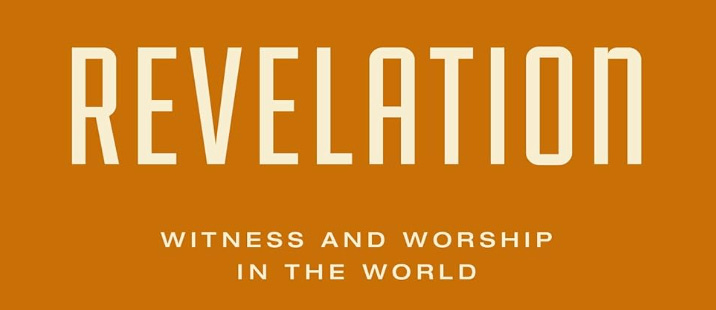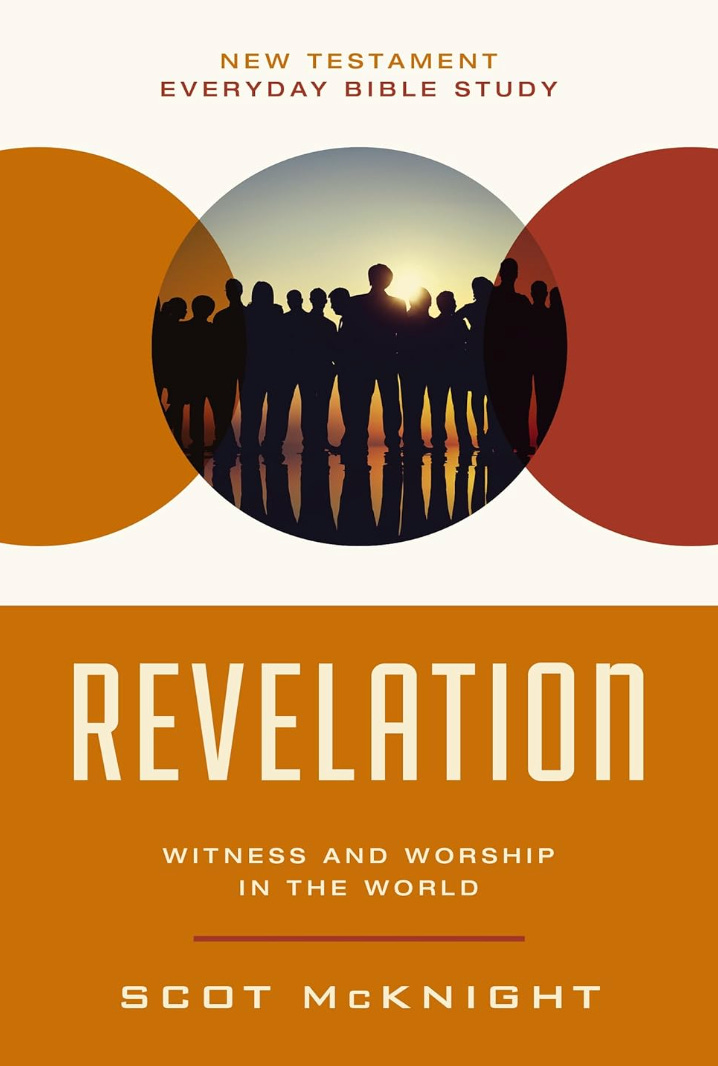
From The Book of Revelation: Witness and Worship in the World, soon-to-be-available in the Everyday Bible Studies.
The questions in all these studies are by Becky Castle Miller. I so appreciate her approach to taking these little Bible study reflections straight to the heart.
The best opening to this Book was written by Gordon Fee, so I quote him to get us started:
Stepping into the Revelation from the rest of the New Testament is to enter into a strange, bizarre new world; and this is true even in the days of The Lord of the Rings and Harry Potter. Instead of narratives, arguments, or plain statements of fact, the Revelation is full of angels, trumpets, and earthquakes; of strange beasts, dragons, and bottomless pits. Most believers, therefore, take one of two extremes: some simply avoid it in despair; others take an exaggerated interest in it, thinking to find here all the keys to the end of the world. [His commentary]
His next sentence is exactly right: “Both of these positions . . . are simply wrong” (Fee, Revelation, ix). Fee describes the book well, takes a quick look at each of the poles of interpretation, and then knocks the poles down. Thus, a different approach is in order, for him, and for me in this Everyday Bible Study series. I join Kathleen Norris, whose fine ear for what Revelation is all about led her to write:
The literature of apocalypse is scary stuff, the kind of thing that can give religion a bad name, because people so often use it as a means of controlling others, instilling dread by invoking a boogeyman God. . . . It is not a detailed prediction of the future, or an invitation to withdraw from the concerns of this world. It is a wake-up call. . . . Maybe we’re meant to use apocalyptic literature in the same way: not as an allowance to indulge in an other-worldly fixation but as an injunction to pay closer attention to the world around us. (Norris, Amazing Grace, 318, 319)
The Book of Revelation is an apocalypse, and for many generations it was called “The Apocalypse of St. John.” An apocalypse opens a drawer or a file or a door or a window onto inside information. Divine inside information, something unveiling, or a revealing of who God is and what will happen on the earth at the hand of God. Soon. You will need your imagination to understand this book. Ellen Davis said this perfectly:
If it weren’t for the book of Revelation’s way of presenting the gospel, The Lord of the Rings never could have happened. Because St. John the Divine, like Tolkien long after him, knew that the best way to strengthen faith is to get Christians’ imaginations fired up. He understood that God works through our imaginations to touch our hearts. So John gives us powerful verbal images—not empty fantasies but true symbols that guide us as we probe the world with our imagination. Isn’t that why God gave us an imagination anyway, so we could look with the eyes of faith beyond surface impressions, and see what is really going on in our world? (Davis, Preaching the Word, 312)
Imagination for what God wants out of God’s people in God’s world, and one clear lesson in this book is that God has searching eyes on politics, on political corruption, and on corrupt political leaders. At any and all levels. Let’s not pussyfoot around with this book and pretend it’s not about politics. So, we will have some sidebars throughout this book that touch on sensitive political topics, like Christian nationalism and de-Christianized progressivism. One singular problem that ties political zealots on both sides of the aisle has been said in the recent memoir by Yahoo! News political correspondent Jon Ward, who wrote after growing up into adulthood in conservative evangelicalism, that those with a strong political agenda among conservative evangelicals “acted as if America and the kingdom of God were the same thing” (Ward, 107). I may be unpopular today to stand between our two political parties, pointing my fingers at both for the same sin, namely, thinking the kingdom and our nation are the same, but stand there I will. But I stand there (in this book and have for decades in my public speaking and writing) because I think both sides get some things right and some things wrong.
Before we open the Book of Revelation, the sins of Babylon in this book are timeless and therefore timely for us: idolatries, immoralities, and injustices. We’ll get to that, but we will also get to three timeless visions of how followers of Jesus, the Lamb of God in Revelation, are to live when they are surrounded by these three timeless sins: wisdom to discern the presence of these sins, a solid witness to Jesus in words and life, and a worship that centers God and the Lamb so powerfully that believers are emboldened in their witness to be dissidents of the corrupted powers at work in today’s many, varied Babylons.

















Looking forward to reading this .